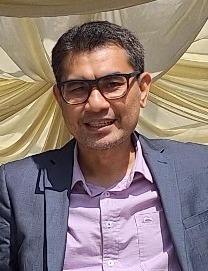Climate Change Mitigation in Solid Waste Management in Mataram City | Sujayadi Muhammad
Field | Discipline
-
Environmental
-
Engineering
Expertise
-
GHG Counting
-
Environmental Impacts Study
Summary
Climate change is a global issue that requires immediate attention. One of the major contributors to climate change is greenhouse gas emissions, which are produced by various human activities, including waste management. This research aims to investigate the potential of solid waste management as a means of mitigating climate change.
Waste management is responsible for emitting a range of greenhouse gases, with methane from decomposing organic waste being the most significant contributor. It is estimated that waste management accounts for 5% of global greenhouse gas emissions, but this figure is uncertain and subject to change, as waste management can act as either a source or a sink of GHGs. As waste poses a threat to both people and the environment, cities are often responsible for providing waste management services as part of their public goods provision to citizens. The increasing quantity and complexity of Municipal Solid Waste has made waste management one of the biggest challenges of the urban world.
Developed countries have acknowledged the significance of waste segregation and recycling in enhancing solid waste management. As a result, they have implemented various approaches such as the 3Rs (Reduce, Reuse, and Recycle) policies, legislations. Accurate data on solid waste generation and waste management practices are also crucial for estimating the necessary human resources, equipment, and materials. Such data helps determine the size and location of waste collection and segregation facilities, design waste disposal systems, and develop overall waste management policies and plans.
The main goal of this research is to assess the impact of waste management on climate change mitigation. The main objective will be achieved through the following sub-objectives:
-
To conduct a greenhouse gas emission inventory in waste sector.
-
To investigate the waste management in community based particularly in segragation process at the household’s level and at the transportation process.
-
To investigate the waste to energy potentials at the Final Disposal Site.
-
To analyze the impacts of waste management on the Sustainable Development Goals (SDGs).
Those objectives will be achieved by utilizing the following methodologies.
The methodology is based on the 2019 Refinement to the 2006 IPCC Guidelines on National Greenhouse Gas Inventories, which is used to estimate greenhouse gas emissions and removals. Additionally, the Good Practices in GHG Inventories for the Waste Sector provides detailed guidance on the methodology and data needed for conducting research on greenhouse gas emission inventory in the waste sector. In addition, conducting surveys to gather information on household solid waste management practices, socio-demographic background, and other relevant waste management practices, socio-demographic background, and other relevant factors. These surveys can help identify the prevalence of positive and negative behaviors related to waste management practices and the factors influencing them. Furthermore, to investigate the waste-to-energy potentials at the final disposal site, a methodology that involves life cycle assessment (LCA) and quantification of landfill gas (LFG) emissions and energy production potential is needed. The data required for this research includes the composition and quantity of waste generated, the ground and climatic conditions of the landfill site, and the characteristics of the solid waste dumped. Finally, in term of the methodologies to assess the impacts of waste management on the Sustainable Development Goals (SDGs), this includes observation of the impact of solid waste management plans and programs, analysis of waste management practices, and assessment of the role of integrated solid waste management in achieving the SDGs.
Supervision by
-
Promotor: Prof. dr. K.S. (Klaus) Hubacek | Integrated Research on Energy, Environment and Society - IREES | ESRIG, University of Groningen.
-
Co-promotor: Ass.Prof. dr. Prajal Pradhan | Integrated Research on Energy, Environment and Society - IREES | ESRIG, University of Groningen.
More information and contact details can be found on the personal profile of Sujayadi Muhammad.
| Last modified: | 07 November 2024 08.42 a.m. |

